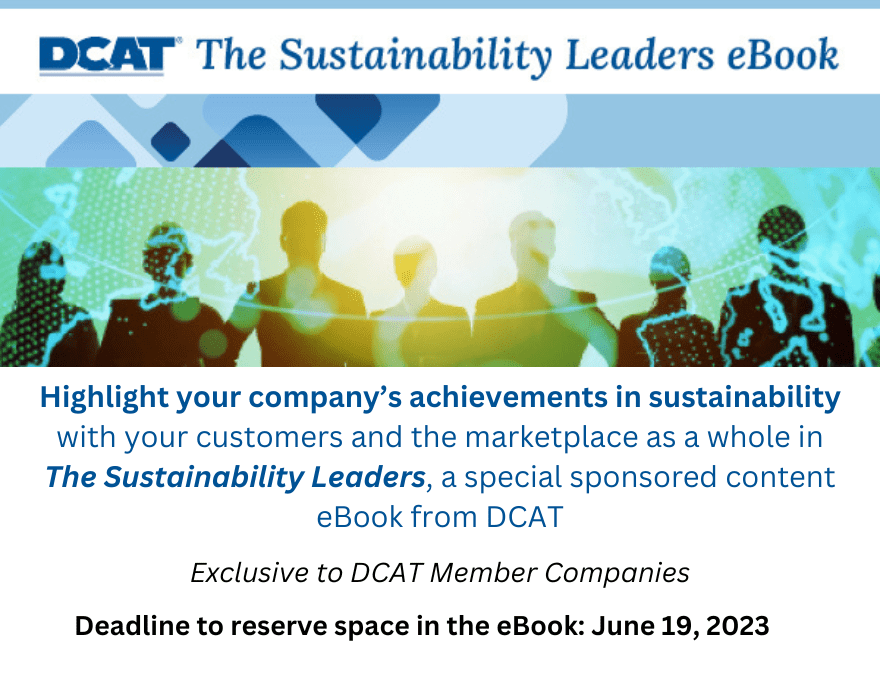Sustainability: Measuring It Globally and in the C-Suite
How does sustainability and ESG (environmental, social and governance) goals and performance factor into companies’ strategies, operational focus, and financial disclosures?
Sustainability and the C-suite.
A recent study by the management consulting firm, Accenture, and the UN Global Compact, a non-binding UN pact of more than 16,000 companies pledging to adopt sustainable and socially responsible policies and to report on their implementation, shows both the commitment and the challenges facing CEOs in implementing their sustainability goals in the context of larger global and business issues.
The 12th United Nations Global Compact-Accenture CEO Study, which was released earlier this year (January 2023), draws on insights from more than 2,600 CEOs across 128 countries, 18 industries, and over 130 in-depth interviews—making the study the largest-ever sampling of executives since the start of the CEO study program in 2007 and the largest CEO study on sustainability ever conducted by the UN Global Compact and Accenture. In the study, CEOs identify the impact of converging setbacks and challenges ranging from economic stability to supply-chain interruptions to the immediate effects of climate change.
The study found that CEOs are facing an enormously challenging global context, with the vast majority (93%) experiencing 10 or more simultaneous challenges to their businesses and 87% warning that current levels of disruption will limit delivery of the United Nations’ (UN) Sustainable Development Goals (SDGs), a set of 17 interlinked goals developed by the UN and its member states to create a shared blueprint for countries to achieve both climate and socioeconomic targets for overall global economic and environmental benefit. While CEOs are increasingly concerned about these headwinds, nearly all (98%) agree that sustainability is core to their role, a sentiment that has grown 15 percentage points over the last 10 years of the study.
“In a world categorized by conflict, energy shortages, rising inflation and the threat of recession, this year’s study shows CEOs do not believe the world is as resilient to crises as we may have hoped. Businesses continue to be impacted by multiple shocks. As a result, on a broad range of issues, from runaway climate change to widening social and economic inequalities, business action right now does not match the ambition and pace needed to achieve the Sustainable Development Goals by 2030,” said Sanda Ojiambo, Assistant Secretary General, CEO and Executive Director of the UN Global Compact, in commenting on the study.

As these challenges stack up, CEOs point to global issues that traditionally lie outside the corporate sphere—such as climate change or socio-political conflicts—as reasons for worry over delivering value and impact for all stakeholders. With only eight years left to acheive the SDGs, nearly half (43%) of CEOs globally say their sustainability efforts have been hampered due to the geopolitical environment, with that number even higher for CEOs from developing countries (51%). When examining net-zero emission targets set by the world’s largest companies, Accenture also found that nearly all will miss their own targets unless they double the rate of carbon emissions reductions by 2030.
However, some CEOs continue to make a great impact and show clear pockets of success that deliver shared stakeholder value and competitive advantage in their industries and are reshaping the future of sustainable development through innovation and collaboration. Two-thirds of CEOs (66%) say their companies are engaging in long-term strategic partnerships to build resilience. These leaders are reconfiguring underlying supply chains, reskilling their workforces, reassessing their relationship with natural resources, and reimagining planetary boundaries through breakthroughs in technology spanning physical, digital and biological solutions, according to the study.
“Not meeting the promise of the SDGs is a real concern but, at the same time, an enormous opportunity for companies that reinvent their enterprises and harness sustainability as one of the key forces of change in the next decade,” said Peter Lacy, Accenture’s Global Sustainability Services Lead and Chief Responsibility Officer, in commenting on the study. “CEOs are clearly concerned about resilience, but one leader’s resilience is another leader’s growth opportunity. New waves of technology investments and breakthrough innovation can put the SDGs back within reach, but only if leaders turn to sustainability for resilience to help create new markets, products and services that can correct the current trajectory and drive growth amid times of disruption.”
In the study, CEOs also identify a clear need to focus on technology for finding solutions to tackle global challenges and drive growth. The study concludes that leading CEOs are already embedding sustainability into their businesses through launching new products and services for sustainability (63%), enhancing sustainability data collection across their value chains (55%), and investing in renewable energy sources (49%). Nearly half (49%) are transitioning to circular business models, and 40% are increasing R&D funding for sustainable innovation.
In their interviews, CEOs identify key initiatives to build resilience for companies, from establishing science-based climate targets and investing in their workforce’s diversity to engaging in cross-industry partnerships on technology solutions, enhancing supply-chain visibility and advancing greater biodiversity. Additionally, CEOs continue calling for government engagement on policy changes that prioritize long-term measurable objectives as standardized ESG reporting frameworks, a global market for carbon, and incentives for sustainable business models.
Despite setbacks, there is positive momentum. “The CEOs we surveyed increasingly recognize they can build credibility and brand value by committing to the Ten Principles [of the UN Global Compact] and the Sustainable Development Goals throughout their operations– not only because it’s the right thing to do, but also because it is good business sense,” added the UN Global Compact’s Ojiambo.
Data collection and reporting a key challenge in achieving ESG goals
A recent study, released in April (April 2023) by the IBM Institute for Business Value, a global think tank, points to sustainability data collection as a key issue in executing a company’s ESG (environmental, social and governance) goals and evaluating company ESG performance. “The ESG conundrum” of executives is that while an increased focus on environmental sustainability remains a top priority for consumers and business executives, inadequate data represent a key challenge for both groups when it comes to ESG goals.
The IBM Institute for Business Value study surveyed 2,500 executives from across 22 industries and 34 countries to examine their organizations’ ESG strategy, approach and operationalization, the benefits they expect from ESG initiatives, and how they weigh ESG against other business objectives. The study also surveyed more than 20,000 consumers across 34 countries about their attitudes toward sustainability and social responsibility, and how these beliefs influence their purchasing decisions, investing, and career decisions.
The study found that surveyed executives point to inadequate data (41%) as the biggest obstacle to their ESG progress, followed by regulatory barriers (39%), inconsistent standards (37%), and inadequate skills (36%). Without the ability to access, analyze and understand ESG data, companies are challenged to deliver greater transparency to stakeholders, including consumers. Seventy-four percent of surveyed executives believe that stakeholders understand their organizations’ ESG objectives and performance, yet only about 4 in 10 surveyed consumers feel they have enough data to make environmentally sustainable purchasing (41%) or employment (37%) decisions.
“Consumer commitment to environmental sustainability and social responsibility has intensified with consumers voting with their wallets,” said Jonathan Wright, Global Managing Partner Sustainability Services and Global Business Transformation, IBM Consulting, in commenting on the study. “As a majority of consumers choose to buy from and work for ESG leaders, businesses must prioritize transparency and break down barriers to ESG data.”
Other key findings from the study from the IBM Institute for Business Value are outlined below.
- Companies are investing in ESG and see it as good for business
- 76% of surveyed executives say ESG is central to their business strategy.
- Almost 3 in 4 surveyed executives (72%) view ESG as a revenue enabler rather than cost center, suggesting that contrary to popular opinion, ESG and profitability are not at odds.
- 76% of executive respondents agree or strongly agree that their organization focuses on achieving ESG outcomes, not just reporting requirements.
- 95% of surveyed executives say their organizations have developed ESG propositions; however, only 10% say that their organizations have made significant progress against them.
- Almost 3 in 4 surveyed executives (73%) say their organizations struggle to manage an overload of manual data, while 7 in 10 say they have difficulty consolidating or manipulating data.
ESG data and financial disclosures
The importance of sustainability data collection is not only to evaluate a company’s sustainability performance, but is also important as companies prepare for proposed climate disclosures in financial reporting in the US and European Union (EU).
In March 2022, the US Securities and Exchange Commission (SEC) proposed rule changes that would require companies registered with the SEC (i.e., publicly traded companies) to include certain climate-related disclosures in their registration statements and periodic reports, including information about climate-related risks that are reasonably likely to have a material impact on their business, results of operations, or financial condition, and certain climate-related financial statement metrics in a note to their audited financial statements. The required information about climate-related risks also would include disclosure of a company’s greenhouse gas emissions, a commonly used metric to assess a company’s exposure to such risks. The proposed rules also would require a company to disclose information about its direct greenhouse gas (GHG) emissions (Scope 1) and indirect emissions from purchased electricity or other forms of energy (Scope 2). In addition, a company would be required to disclose GHG emissions from upstream and downstream activities in its value chain (Scope 3), if material or if the company has set a GHG emissions target or goal that includes Scope 3 emissions. While the proposed rules are not final and still under review and development, companies are already preparing for the requirements.
A recent survey, released in December 2022 by the management consulting and accounting firm, Deloitte, surveyed 300 senior finance, accounting, legal and sustainability leaders from US public companies to evaluate companies’ increased preparations and planned investments to address challenges and growing expectations for sustainability reporting. Key findings are outlined below.
- Nearly 3 in 5 (57%) executives report having implemented a cross-functional ESG working group tasked with driving strategic attention to ESG and another 42% are taking steps to do the same. A similar profile of survey respondents in the 2021 Deloitte study indicated that only 21% had implemented a cross-functional ESG working group.
- Many companies report being prepared to disclose Scope 1 GHG emissions (61%), and more than 3 in 4 (76%) executives are prepared to disclose Scope 2 GHG emissions, a noteworthy increase from 47% in the 2021 Deloitte study. However, Scope 3 disclosure is still a work in progress, with only one third (37%) of respondents currently prepared to disclose details, a modest increase (31%) from the 2021 Deloitte study. The vast majority (86%) reported challenges measuring Scope 3 GHG emissions.
While the Deloitte study showed that most companies are taking meaningful steps toward enhancing sustainability disclosures, challenges remain. Companies are concerned about the accuracy and completeness of sustainability data. Executives list quality (35%) as the top data challenge, up from 25% in 2021. Another 25% cited access to data as the greatest challenge, a slight decrease from the 32% cited by a similar profile of respondents in 2021.
In the EU, the EU has already finalized financial disclosure requirements, to take effect in 2024 for financial reporting in 2025, which requires all large companies and all listed companies (except listed micro-enterprises) to disclose information on what they see as the risks and opportunities arising from social and environmental issues and the impact of their activities on people and the environment. Such disclosures are intended to help investors, civil society organizations, consumers, and other stakeholders to evaluate the sustainability performance of companies as part of the European Green Deal, a set of policy proposals by the European Commission to make the EU’s climate, energy, transport, and taxation policies fit for reducing net greenhouse gas emissions by at least 55% by 2030, compared to 1990 levels, and to achieve no net emissions of greenhouse gases by 2050.
With respect to financial reporting, earlier this year (January 2023), the EU’s Corporate Sustainability Reporting Directive (CSRD) entered into force. This new directive modernizes and strengthens the rules concerning the social and environmental information that companies have to report. A broader set of large companies, as well as listed small-to medium-sized enterprises (SMEs), will now be required to report on sustainability, approximately 50 000 companies in total, according to information from the European Commission.
The European Commission specifies that new rules will ensure that investors and other stakeholders have access to the information they need to assess investment risks arising from climate change and other sustainability issues. It also says that the new rules will also create a culture of transparency about the impact companies have on people and the environment. Finally, under the new rules, the European Commission says that reporting costs will be reduced for companies over the medium to long term by harmonizing the information to be provided.
The first companies will have to apply the new rules for the first time in the 2024 financial year, for reports published in 2025. Companies subject to the CSRD will have to report according to European Sustainability Reporting Standards, draft standards being developed by the EFRAG, previously known as the European Financial Reporting Advisory Group, an independent body bringing together various different stakeholders. The European Commission is expected to adopt the first set of standards by mid-2023, based on the draft standards published by EFRAG in November 2022. The CSRD also makes it mandatory for companies to have an audit of the sustainability information that they report. In addition, it provides for the digitalization of sustainability information.








